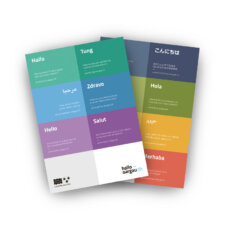Advance directive
An advance directive (Vorsorgeauftrag) is a written arrangement. It's helpful if, for example, someone is no longer able to make decisions for themselves due to an accident, illness or the effects of old age (incapacity to make decisions). The advance directive appoints a trusted person to take care of personal matters. It can be drawn up as a handwritten declaration or be prepared by a notary. The advance directive should describe exactly what tasks are to be handed over. It may be amended or withdrawn at any time. The child and adult welfare authority (Kindes- und Erwachsenenschutzbehörde, KESB) checks whether the advance directive is valid. The KESB may take measures to protect the interests of the person preparing the directive.



